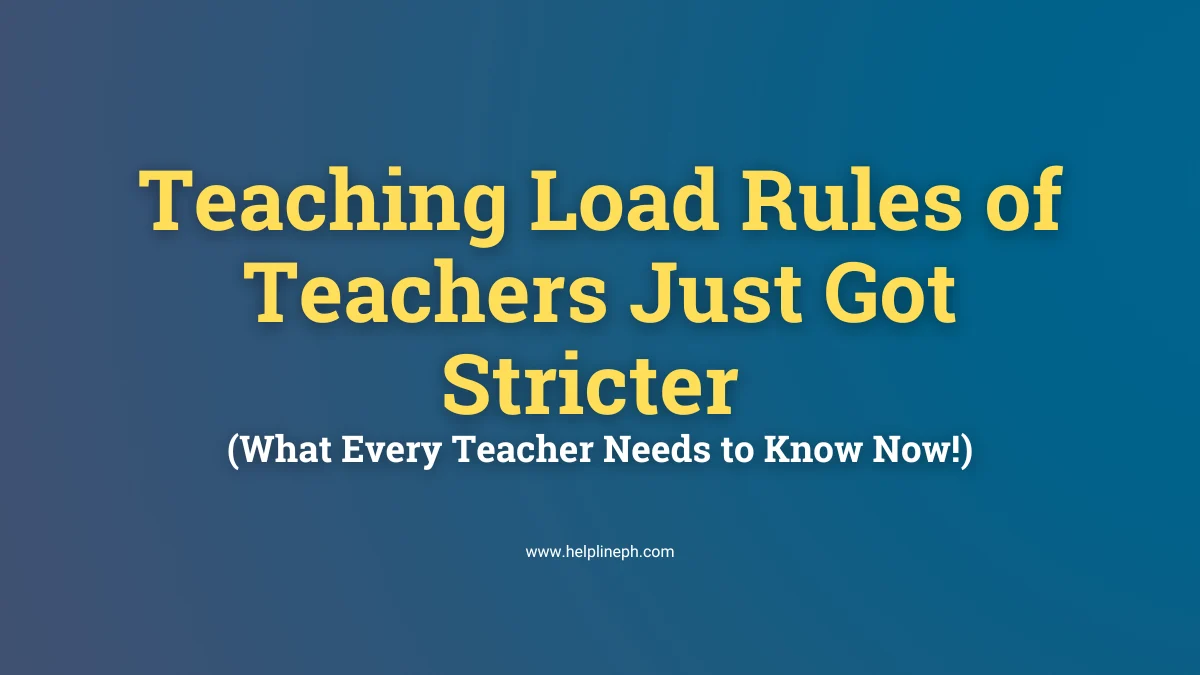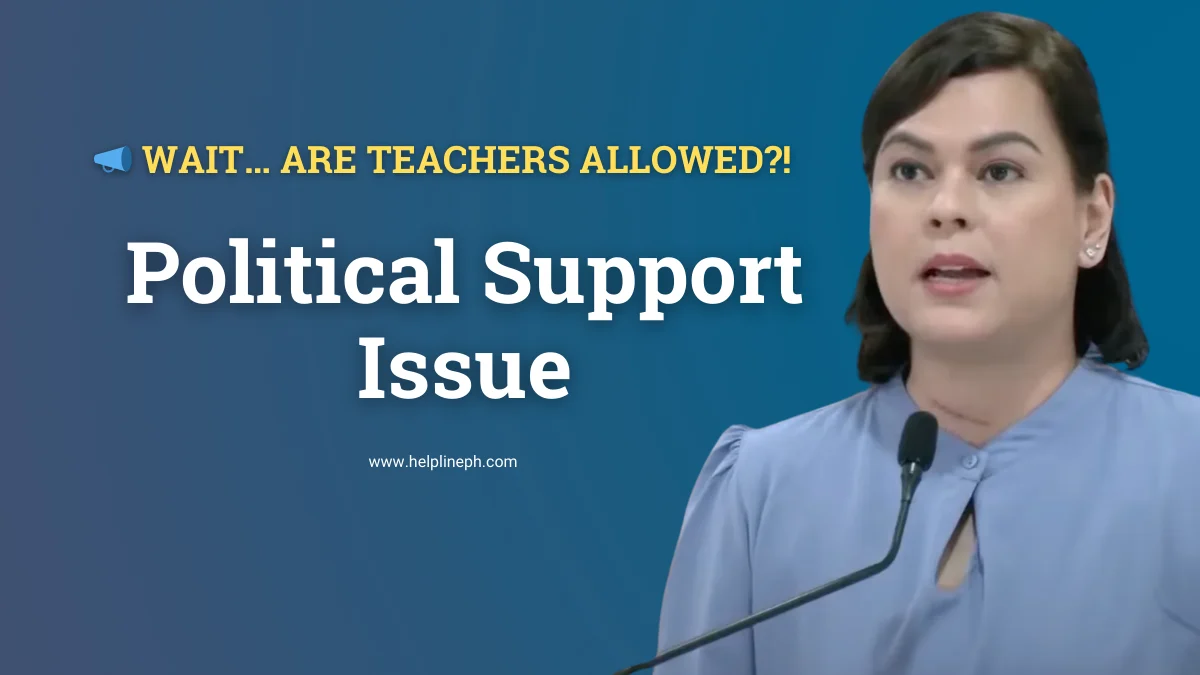Why the New Teaching Load Guidance Matters
The Department of Education (DepEd) has shared new rules on how schools should assign the teaching load to teachers. These rules make sure that teachers are teaching the right subjects based on their training, licenses, and experience.
The goal is simple: put the right teacher in the right place so students can get the best education possible. I believe this is a smart move because when teachers teach what they know best, students learn more.
📚 Main Points from the Memorandum
Here are the key parts from the memorandum titled “Additional Guidance on the Assignment of Teaching Load to Teachers” dated June 4, 2025:
1. Master Teachers Should Teach Key Stage 1 (Kinder–Grade 3)
Master Teachers must handle Key Stage 1 classes. These are the most important years for young learners. Master Teachers have the skills and experience to build strong learning foundations. DepEd wants schools to use their skills wisely.
2. Teachers Must Teach Their Specialization
Teachers should teach subjects they are licensed and trained to teach. This means:
- Match the teaching subject with their educational background
- Consider their teaching license
- Include their training and experience
For those working in education units, DepEd says to use the PRC (Professional Regulation Commission) Taxonomy to guide specialization.
3. Assign Teachers to the Right Grade Levels and Learning Areas
Only assign teachers to grade levels or subjects where they’ve received proper training. This helps them do better at teaching and helps students understand lessons more clearly.
✅ How Schools Should Monitor This
To make sure the rules are followed, DepEd wants Schools Division Offices (SDOs) and Curriculum Implementation Divisions (CID) to:
- Use monitoring tools
- Check if teaching assignments are correct
- Make sure school heads follow the teaching load rules
This isn’t just a one-time check. It should happen regularly to improve the whole system.
🧾 What Schools Must Do with eSF7
DepEd also wants school officials to:
- Check the specialization of teachers using the electronic School Form 7 (eSF7)
- Run a regular audit using eSF7 or other tools. This checks if teachers are handling the correct subjects based on their training and licenses
The goal is to align teacher work with their expertise.
📣 Why This Change Is Helpful
I’ve seen many cases where teachers are asked to teach subjects they weren’t trained for. This often leads to:
- Confused students
- Stressed teachers
- Poor exam results
With these new rules, we can expect better:
- Learning outcomes
- Teacher satisfaction
- School performance
It’s also a fair system. Teachers who worked hard to earn their licenses and attend training finally get to use their skills properly.
Frequently Asked Questions (FAQs)
What is the main purpose of the new teaching load rules?
To make sure teachers are assigned to subjects and grade levels they are trained and licensed to teach.
Who should teach Kinder to Grade 3?
Master Teachers should handle these grades to help children build strong learning foundations.
What tool is used to check teacher specialization?
The electronic School Form 7 (eSF7) is used to check and audit teacher load and specialization.
What happens if a teacher is assigned the wrong subject?
It can affect student learning. That’s why DepEd wants regular audits and monitoring to prevent this.
Who ensures the rules are followed?
The Schools Division Offices (SDOs) and Curriculum Implementation Division (CID) are responsible for this.
This move by DepEd is a big step forward. Giving the right teaching load to teachers can improve learning for students and make work fairer for teachers. If you’re a teacher or school head, it’s your job to follow these rules.
Let’s support quality education by making sure teachers teach what they do best.






